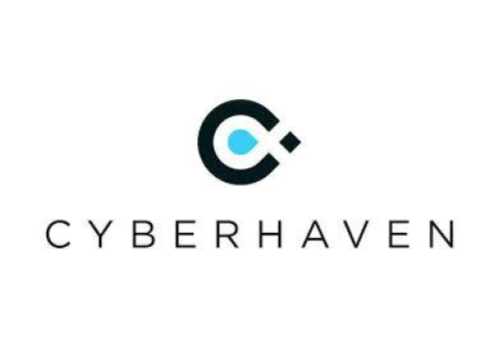Chrome Extensions Under Siege: A Wake-Up Call for Cybersecurity
December 29, 2024, 3:49 am

Location: United States, California, Palo Alto
Employees: 11-50
Founded date: 2016
Total raised: $134M
In the digital age, our tools can become our greatest vulnerabilities. Recent events have highlighted this stark reality. A wave of cyberattacks has swept through the realm of Chrome extensions, targeting various companies and raising alarms about the security of our online lives.
The saga began in mid-December 2024. Hackers infiltrated multiple Chrome browser extensions, leaving a trail of compromised data in their wake. Among the victims was Cyberhaven, a California-based data protection firm. They confirmed a breach on Christmas Eve, a day meant for celebration turned into a nightmare for the company. The attack was not an isolated incident; it was part of a broader campaign aimed at Chrome extension developers across the board.
Browser extensions are like the Swiss Army knives of the internet. They enhance our browsing experience, from applying coupons to securing sensitive data. However, this convenience comes with risks. Cyberhaven’s extension was designed to monitor and protect client data. Yet, it became a target, exposing the fragility of even the most trusted tools.
Experts have noted that this attack was not just a random act of cyber vandalism. Jaime Blasco, co-founder of Nudge Security, pointed out that other extensions, particularly those related to artificial intelligence and virtual private networks, were also compromised. This suggests a calculated effort to harvest sensitive information from unsuspecting users. The hackers were not picky; they were casting a wide net, hoping to reel in as much data as possible.
The implications of these breaches are significant. When hackers gain access to extensions, they can manipulate them to siphon off user data. This data can include everything from browsing habits to personal information. In a world where data is currency, this is a goldmine for cybercriminals.
The U.S. Cybersecurity and Infrastructure Security Agency (CISA) has been largely silent on the matter, referring inquiries back to the affected companies. This lack of immediate guidance leaves users in a precarious position. When the guardians of our digital safety are quiet, it raises questions about the effectiveness of our cybersecurity infrastructure.
The extent of the geographical reach of these hacks remains unclear. Cybersecurity is a global issue, and the ramifications of such breaches can ripple across borders. Companies must now grapple with the fallout. They must reassess their security protocols and ensure that their extensions are not just tools, but fortified bastions against cyber threats.
The attack on Cyberhaven serves as a wake-up call. It highlights the need for vigilance in an increasingly interconnected world. Users must be aware of the risks associated with browser extensions. Just as we lock our doors at night, we must also safeguard our digital lives.
For companies, the stakes are even higher. A breach can lead to loss of trust, financial repercussions, and legal consequences. Cyberhaven is cooperating with federal law enforcement, but the damage is done. Their reputation has been tarnished, and their clients may think twice before trusting them again.
This incident underscores a larger trend in cybersecurity. As technology evolves, so do the tactics of cybercriminals. They are becoming more sophisticated, exploiting vulnerabilities in software that many users take for granted. The very tools we rely on for convenience can become weapons in the hands of malicious actors.
In response, companies must prioritize cybersecurity. This means investing in robust security measures, conducting regular audits, and educating employees about potential threats. It’s not enough to react after a breach; proactive measures are essential.
Users, too, have a role to play. They should scrutinize the extensions they install. Are they from reputable sources? Do they have good reviews? A little diligence can go a long way in protecting personal data.
The Chrome extension breaches are a stark reminder of the digital landscape we navigate daily. It’s a jungle out there, filled with both wonders and dangers. As we continue to embrace technology, we must also arm ourselves with knowledge and tools to defend against cyber threats.
In conclusion, the recent attacks on Chrome extensions are not just isolated incidents; they are part of a larger narrative about cybersecurity in the modern world. As we move forward, let this be a lesson. Cybersecurity is not just the responsibility of companies; it’s a shared duty. Together, we can build a safer digital environment. But it requires awareness, vigilance, and a commitment to security. The battle against cybercrime is ongoing, and every user must be a soldier in this fight.
The saga began in mid-December 2024. Hackers infiltrated multiple Chrome browser extensions, leaving a trail of compromised data in their wake. Among the victims was Cyberhaven, a California-based data protection firm. They confirmed a breach on Christmas Eve, a day meant for celebration turned into a nightmare for the company. The attack was not an isolated incident; it was part of a broader campaign aimed at Chrome extension developers across the board.
Browser extensions are like the Swiss Army knives of the internet. They enhance our browsing experience, from applying coupons to securing sensitive data. However, this convenience comes with risks. Cyberhaven’s extension was designed to monitor and protect client data. Yet, it became a target, exposing the fragility of even the most trusted tools.
Experts have noted that this attack was not just a random act of cyber vandalism. Jaime Blasco, co-founder of Nudge Security, pointed out that other extensions, particularly those related to artificial intelligence and virtual private networks, were also compromised. This suggests a calculated effort to harvest sensitive information from unsuspecting users. The hackers were not picky; they were casting a wide net, hoping to reel in as much data as possible.
The implications of these breaches are significant. When hackers gain access to extensions, they can manipulate them to siphon off user data. This data can include everything from browsing habits to personal information. In a world where data is currency, this is a goldmine for cybercriminals.
The U.S. Cybersecurity and Infrastructure Security Agency (CISA) has been largely silent on the matter, referring inquiries back to the affected companies. This lack of immediate guidance leaves users in a precarious position. When the guardians of our digital safety are quiet, it raises questions about the effectiveness of our cybersecurity infrastructure.
The extent of the geographical reach of these hacks remains unclear. Cybersecurity is a global issue, and the ramifications of such breaches can ripple across borders. Companies must now grapple with the fallout. They must reassess their security protocols and ensure that their extensions are not just tools, but fortified bastions against cyber threats.
The attack on Cyberhaven serves as a wake-up call. It highlights the need for vigilance in an increasingly interconnected world. Users must be aware of the risks associated with browser extensions. Just as we lock our doors at night, we must also safeguard our digital lives.
For companies, the stakes are even higher. A breach can lead to loss of trust, financial repercussions, and legal consequences. Cyberhaven is cooperating with federal law enforcement, but the damage is done. Their reputation has been tarnished, and their clients may think twice before trusting them again.
This incident underscores a larger trend in cybersecurity. As technology evolves, so do the tactics of cybercriminals. They are becoming more sophisticated, exploiting vulnerabilities in software that many users take for granted. The very tools we rely on for convenience can become weapons in the hands of malicious actors.
In response, companies must prioritize cybersecurity. This means investing in robust security measures, conducting regular audits, and educating employees about potential threats. It’s not enough to react after a breach; proactive measures are essential.
Users, too, have a role to play. They should scrutinize the extensions they install. Are they from reputable sources? Do they have good reviews? A little diligence can go a long way in protecting personal data.
The Chrome extension breaches are a stark reminder of the digital landscape we navigate daily. It’s a jungle out there, filled with both wonders and dangers. As we continue to embrace technology, we must also arm ourselves with knowledge and tools to defend against cyber threats.
In conclusion, the recent attacks on Chrome extensions are not just isolated incidents; they are part of a larger narrative about cybersecurity in the modern world. As we move forward, let this be a lesson. Cybersecurity is not just the responsibility of companies; it’s a shared duty. Together, we can build a safer digital environment. But it requires awareness, vigilance, and a commitment to security. The battle against cybercrime is ongoing, and every user must be a soldier in this fight.
